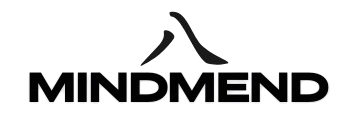Mission Accomplished: MindMend8 Study Accepted for Publication!
It’s official—after days of compulsive inbox checking, I finally received the news I’d hoped for: my research paper, the one involving calf raises and counting in Mandarin, is going to appear in the Curieux Academic Journal. The excitement I felt reading that acceptance was real, not just for reaching a personal milestone, but for what it could mean for my community.
Since the beginning, my main goal wasn’t just to write a paper; I genuinely wanted to do something meaningful for Cumming, Georgia. I’ve always believed that science isn’t just for labs or universities on the other side of the world—it can (and should) start right where you live. That meant rolling up my sleeves, stepping out into my hometown, and trying to introduce a fresh perspective on pain management to the people around me.
There were plenty of practical and sometimes awkward challenges—like recruiting folks to try counting in a totally unfamiliar language while working through discomfort. Let’s face it, exploring pain control by learning Mandarin during physical therapy isn’t something you hear about every day in Cumming. But what made it worth it was knowing that even a small project could plant a seed. I wasn’t out to revolutionize pain science overnight; I wanted to show that curiosity and compassion—paired with a willingness to experiment—could actually make life a little easier, even if it was just for a few neighbors.
Here’s how the project worked: local patients performing calf raises first counted reps in English, then repeated the exercise while counting in Mandarin—even though none of them spoke it. The idea was to see if tackling something new and cognitively demanding could actually change their experience of pain.
And the results? They surprised me, too. When participants counted in Mandarin, their pain scores dropped by a noticeable margin. Maybe it seems like a small shift, but when it comes to pain, every point matters. The take-home message was clear—engaging the mind in something unfamiliar can help take the edge off pain, a finding with real potential for therapy and rehab.
Of course, turning this idea into a published paper involved plenty of long nights, a hearty dose of trial and error, and facing the vulnerability of having my work picked apart by peer reviewers. Through all of it, though, the drive to make a difference in my community kept me going.
This experience has taught me that progress often starts locally. Even a modest project, done with intention and openness, can matter. My study was just one contribution—a first step—but I hope it sparks conversations and maybe even inspires others to try something new, right here at home.
More than anything, I’m grateful that my work will be out there in the world. Having my project published is amazing, but knowing it began with a desire to help the people closest to me is what makes it meaningful. Passion and curiosity really can bring about small, positive changes—sometimes right in your own backyard.
